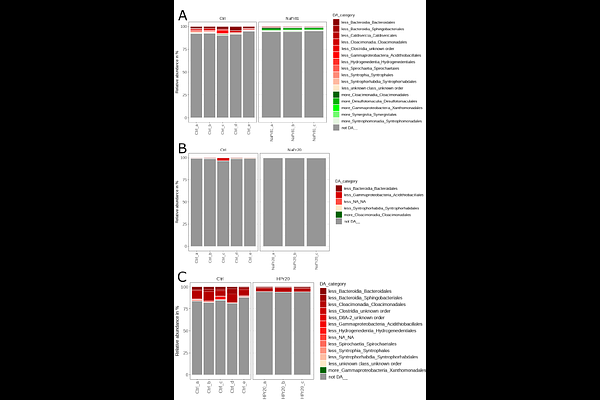A deeper study on propionic acid-related inhibition during anaerobic digestion: insights on methane production and identification of biomarker candidates for an early warning

A deeper study on propionic acid-related inhibition during anaerobic digestion: insights on methane production and identification of biomarker candidates for an early warning
Liu, X.; Soulard, C.; Jamilloux, V.; Pauss, A.; Andre, L.; Ribeiro, T.; Guerin-Rechdaoui, S.; Rocher, V.; Lacroix, C.; Bureau, C.; Midoux, C.; Chapleur, O.; Bize, A.; Roose-Amsaleg, C.
AbstractInhibition by propionic acid is a major challenge for the smooth operation of anaerobic digestion (AD) of sewage sludge for biogas production. We conducted an original study to better understand the respective roles of propionic acid, its conjugate base propionate and pH in the AD inhibition, and to identify potential inhibition biomarkers for an early warning. We focused on both methane production and microbial community composition, during the digestion of wastewater treatment sludge. A partial decrease in methane production was detected with the addition of 13 mM of propionic acid (1,000 mg.L-1), while total inhibition occurred for 81 mM (6,000 mg.L-1). Comparisons with the effects of adding sodium propionate, sodium chloride, and lowering the pH indicated that this inhibition was largely attributed to the H+ counter-ion. In particular, only moderate inhibition was observed when adding sodium propionate at a concentration of 81 mM. The composition of the microbial communities was significantly modified in the presence of propionate, with this adaptation specifically depending on the nature and concentration of the compound added, more precisely of the counterion. Various functional groups were affected, including syntrophs and methanogenic archaea. The relative abundance of the latter decreased significantly in the presence of propionic acid, consistent with the negative effects observed on the methane production rate, and with previous studies. Several microbial groups highly sensitive to propionic acid were identified in both our tests, in particular the family ST-12K33 (order Sphingobacteriales), which emerged as a strong biomarker candidate.